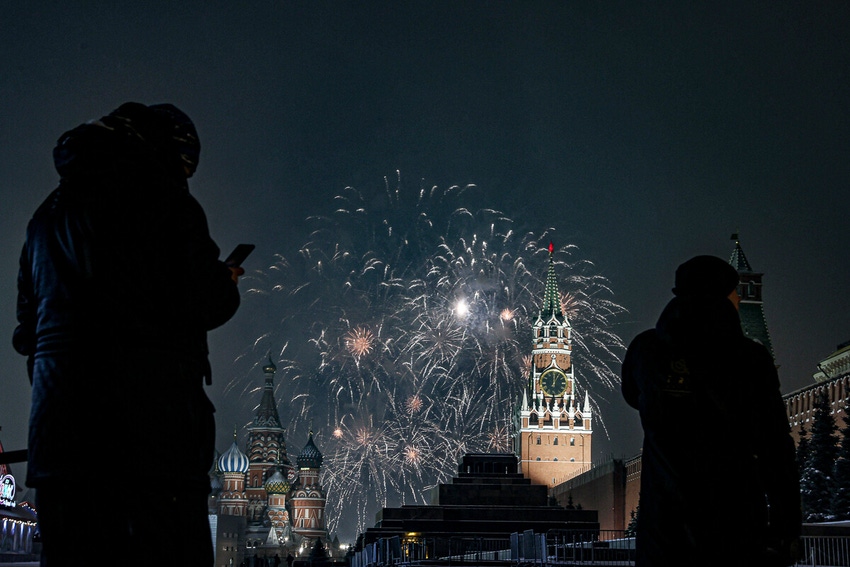Russia steps up 5G agenda, but uncertainties remain
Russia looks set to plan a strategy that assumes the 'golden' 3.5GHz band will not be released for 5G.

A recent Reuters Fact Check had the somewhat mysterious headline: "No evidence 5G banned in Russia." Apparently, some unsubstantiated rumors had been flying around that President Vladimir Putin had banned 5G across the country.
In fact, as Reuters pointed out, Russia has expressed an interest in expanding 5G. In a June 20 session discussing the development of the telecom industry until 2035, Russian Prime Minister Mikhail Mishustin spoke of a roadmap in place to speed up the 5G transition.
As before, the deployment of 5G in Russia remains a complex matter, not least because Western European vendors Ericsson and Nokia pulled out of Russia following the country's invasion of Ukraine. The situation of China-based Huawei and ZTE is complicated by the need to comply with international sanction rules.
Meanwhile, Russian publication Kommersant regularly reports on efforts by the Russian government to invest in home-grown telecom equipment including 5G basestations, with subsidies offered to manufacturers such as Yadro, Skoltech, Bulat and Rostec.
According to Diana Gorelik, who covers the CIS and Russia for Light Reading sister company Omdia, "Russia plans the commercial launch of 5G by 2030, and 5G networks will be deployed on domestic equipment in all cities of Russia with a population of over 100,000 people."
One of the biggest obstacles to overcome is the availability of radio frequencies, however. The 3.5GHz "golden band" is prime spectrum real estate for 5G, with mobile network operators in multiple countries now using the midband frequencies for network deployments.
In 2020, Andrey Kamensky, the chief financial officer of MTS, told Light Reading that regulators in Russia "are unwilling to allocate in the 3.4GHz–3.8GHz range."
Russia does not seem to have changed its position since then. Indeed, the signs are that the nation's government intends to ban the use of the 3.4GHz–3.8GHz band for 5G.
It's complicated
As Gorelik points out, the 3.4GHz–3.8GHz band is used by military organizations, and the Russian government has always been hesitant about releasing it for 5G.
In June, it was reported that frequencies in this band could be issued for a single, state-backed 5G operator created on the back of national fixed operator Rostelecom, thereby ensuring the government and military would retain full control over the 3.4GHz–3.8GHz band. The reports suggested that the sole 5G licensee would be required to implement a 'frequency sharing system' allowing law enforcement agencies to shut down network signals in any given location.
"However, in its August 2023 update, the Russian Ministry of Digital Development, Communications and Mass Media confirmed that the government is more likely to ban 3.4GHz–3.8GHz for 5G use," Gorelik said.
The Interfax news agency also reported this week that the draft strategy for the development of the Russian telecom industry through 2035 assumes a ban on the use of the "golden band" of radio frequencies.
Quoting Maxut Shadayev, head of the Digital Development Ministry, the agency noted that the issue of transferring the 700MHz band to cellular operators also remains unresolved because broadcasters have yet to give up these frequencies.
Instead, Gorelik said, there are plans to use 4.4GHz–4.9GHz as a priority band, as well as the 6GHz (currently used by the analog TV broadcasters) and 24.25GHz–27.5GHz bands.
As for the operators themselves, Shadayev told reporters at the Digital Evolution forum last week that the ministry has been instructed to work on the issue of a single operator, according to Interfax.
At the same time, Rostelecom is also part of 5G development joint venture New Digital Solutions, along with MegaFon, Beeline and Mobile TeleSystems (MTS). The aim of the JV is to research the spectrum bands for 5G networks and resolve various organizational and technical issues that hinder the progress of 5G in Russia.
Gorelik said that while she understands the idea of using a single operator is still under consideration, "the role of other telcos as well as the extent of the participation of this New Digital Solutions Venture in a 5G launch is still unclear."
As summed up by Gorelik, 5G prospects in Russia remain very uncertain, "but almost certainly they won't launch 5G until 2030. If the [Ukraine] war doesn't end by then, it is more likely to be delayed even further."
She also noted that consumer demand "will be limited to the big cities, provided there will be enough low-cost Chinese 5G smartphones to satisfy this demand. 5G rollout in rural areas will be very slow and there is unlikely to be much demand there."
From a B2B perspective, "in the long-term outlook there might be some demand for 5G private networks and other enterprise use cases in verticals, such as manufacturing and agriculture," she added.
Related posts:
— Anne Morris, contributing editor, special to Light Reading
About the Author(s)
You May Also Like












